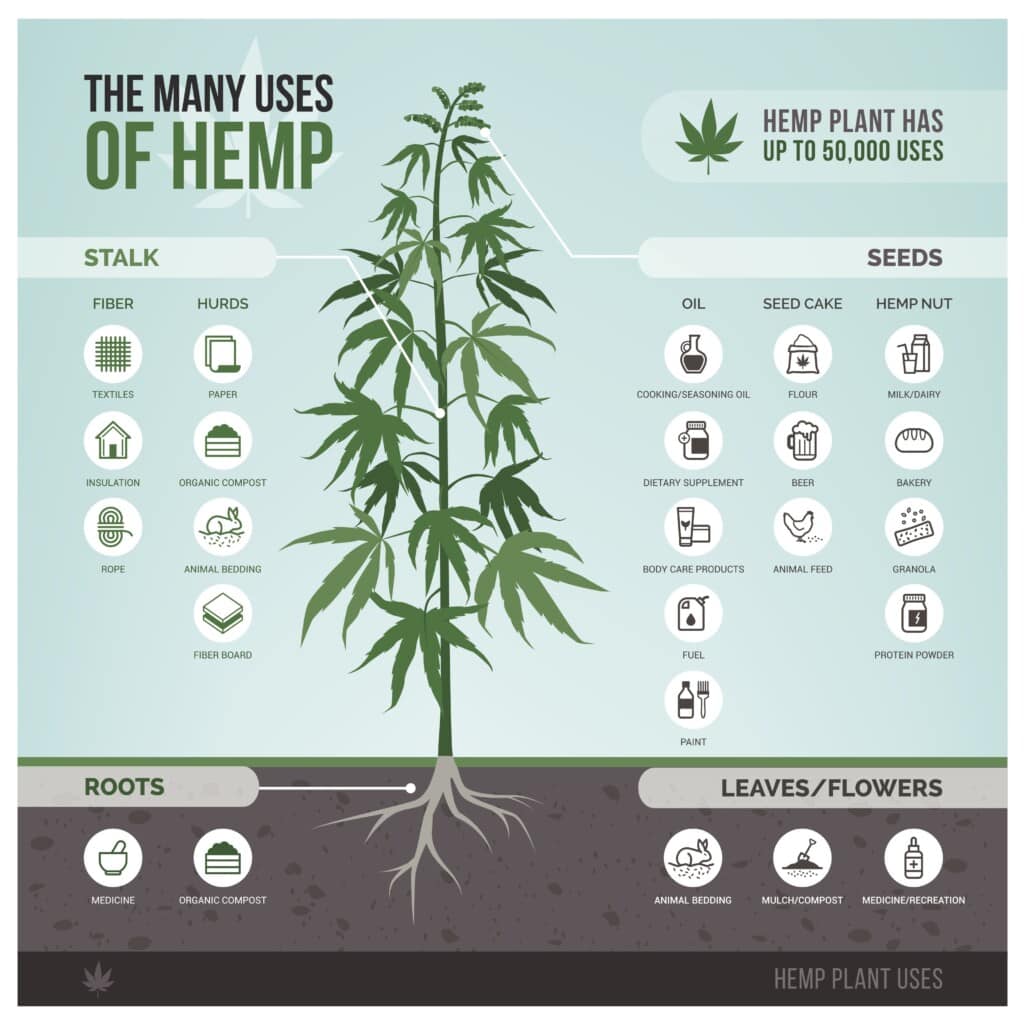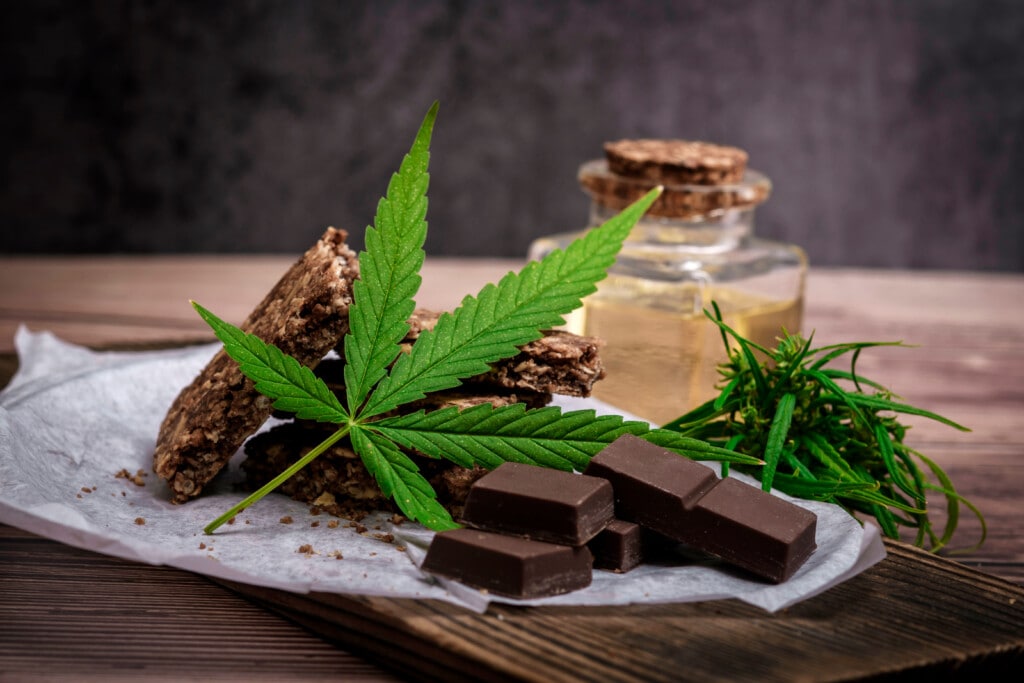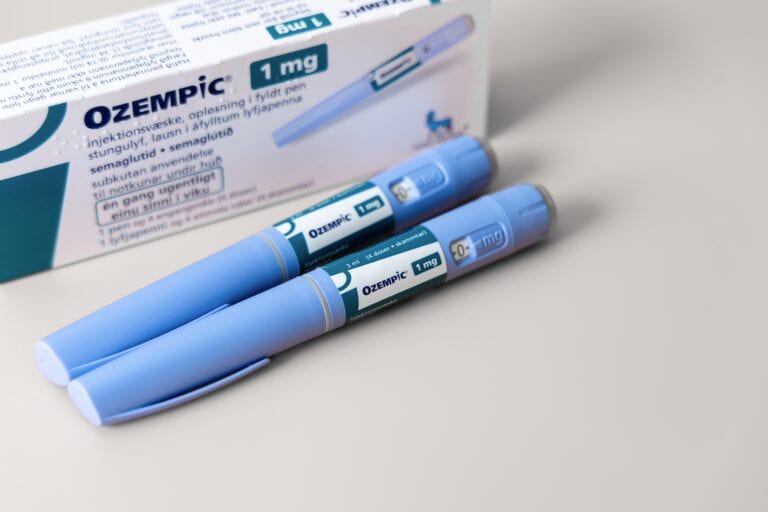First of all, what is CBD? CBD is an abbreviation for Cannabidiol, which is one of many compounds called Cannabinoids found in hemp and marijuana. It’s not the ingredient that gets you high! That’s THC.
Table of Contents
ToggleHemp
Most CBD is derived from hemp, a variety of the Cannibus Sativa plant species. It is one of the fastest-growing plants on earth. Marijuana is its salacious cousin.

Hemp has a myriad of uses, including fiber for rope, paper, and garments, seeds that are high in protein as a food source, and leaves and flowers that provide oil for medicinal purposes. As far back as 3,000 BC, hemp was used by the Chinese for manufacturing and medicine. Hemp use was widespread in Greco-Roman times, native Indian cultures, and in the US colonies. Even George Washington and Thomas Jefferson grew and sold hemp.
It was a legal crop in the US in the 1700s and 1800s, but by the 1900s was effectively banned due to its link to marijuana. This century, hemp was rehabilitated and in 2019, the US was the 3rd largest producer of hemp in the world.
CBD Safety
According to the World Health Organization and many US University studies, there are no significant adverse effects of consuming CBD, and no indication of any abuse or dependence potential. The more important concern for anyone looking to try or use CBD is selecting CBD that has been properly extracted and processed.
Health Benefits of CBD
The human body actually has a network called the Endocannibinoid System, or ECS, that helps to regulate sleep, appetite, pain centers, and the immune system. And our own bodies actually produce cannibinoids that bind to receptors (think lock and key) in our nervous system and elsewhere to help modulate pain, inflammation, and other cell responses. In much the same way, CBD can interact with those receptors to achieve similar effects.
While CBD cannot cure any disease, as some purveyors would like you to believe, there are many studies that show definite positive health benefits:
Pain and Inflammation
Whether used topically or ingested, CBD can relieve the pain and inflammation associated with certain diseases like arthritis, or muscle injury and strain.
Anxiety and Depression
One Brazilian study recently showed that a 300mg dose of CBD had a profound effect on participants who were performing a public speaking test. Many other studies show that patients with depression find that CBD elevates their mood with or without their anti-depressant medication.
Cancer-related symptoms
Again, while CBD doesn’t treat cancerous tumors, it can often mitigate the adverse effects of either the cancer or the treatment, like nausea, vomiting, or pain.
Hypertension
There are preliminary studies that show that moderate use of CBD can help control high blood pressure. While more studies are needed, it could be a promising addition to treating hypertension.
CBD Products

There are many ways you can use CBD:
Topical
CBD is available as an oil, cream, and lotion and can be applied by hand or with a roll-on. Topical application is best for localized symptoms like joint or muscle pain. When applied to the skin it will penetrate into the deeper layers to provide relief, but very little gets absorbed into the bloodstream, so this would not be the best route for treating anxiety or more significant pain. But for the muscle pain, cramps, and soreness, the higher the concentration, the more relief you’ll get!
Sublingual
A lot of medications, like nitroglycerin and Zofran, are taken by placing them under the tongue. Their composition allows for rapid dissolving and absorption into the bloodstream. You might hear that it has “good bioavailability,” which simply means it gets into your system fast! Usually it’s an oil or rapid absorbing strip that is used sublingually.
Ingestion
Eating CBD is very common, and is usually in pill form or edibles, like cookies, candy, or gummies. This route works more slowly since it has to be digested and processed in the liver. As a result, less CBD ends up in your system. So this has less bioavailability, but generally lasts longer than the sublingual route.
CBD Side-Effects
There are minimal side-effects reported with normal use of CBD, especially topical use. The most common side-effects of CBD are nausea, vomiting, and irritability.
CBD can interfere with the action of conventional medications, much like grapefruit can. The actions of certain antibiotics, anti-depressants, and blood thinners like Coumadin, can be affected, so obviously consult your physician before starting CBD
So, Does It Work?
The short answer is yes, CBD works. More good research is necessary to fully understand how it works and where it can be most effective, but CBD is gaining more acceptance in western medicine. Do your research when you shop and make sure you’re buying a good product.

















